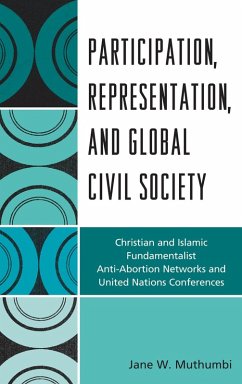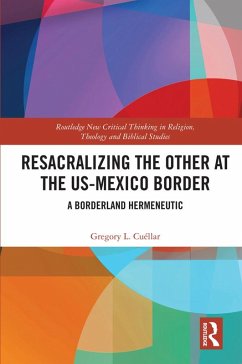
Religion in Global Civil Society (eBook, PDF)

PAYBACK Punkte
4 °P sammeln!
The extraordinary changes in world society at the beginning of the 21st century have involved religion to a degree that would have amazed earlier observers of modernity. Within the past decade religion has been associated with some of the world's most strident forms of political encounter, including new movements of nationalism, the clerical leadership of political sects, and the religiously motivated acts of terrorism. Religion seems to be trying to tear the planet apart, even as other cultural forces seem to be trying to pull it together. The technology of the Internet, film, television, cel...
The extraordinary changes in world society at the beginning of the 21st century have involved religion to a degree that would have amazed earlier observers of modernity. Within the past decade religion has been associated with some of the world's most strident forms of political encounter, including new movements of nationalism, the clerical leadership of political sects, and the religiously motivated acts of terrorism. Religion seems to be trying to tear the planet apart, even as other cultural forces seem to be trying to pull it together. The technology of the Internet, film, television, cell phones, and other forms of rapid universal communication seem to be knitting the world into a single social fabric. Consumer franchises and popular culture seem to be making the world a single global city. Religion seems to be at odds with all of this. Is religion the natural enemy of globalization? The essays in this volume explore the difficulties and possibilities of a diversity of religious groups occupying the same civil society. The authors avoid simplistic generalizations. Religion, they show, is not only identified with the culture and politics of the hostile anti-urban village--it is not simply the jihad that Benjamin Barber identified as the opponent of the homogenous global culture of McWorld. True, some religious activists have blown things up. But others have tried to smooth things over. Even the religious opposition to globalization is nuanced. Some violent activists (like Hindu extremists in India) want a new religious state. Others, like Christian militias or al Qaeda, envision a transnational religious entity--a kind of religious globalization to supplant the secular one. Prophetic religious voices call for moderation, justice, and environmental protection. Religion, these essays demonstrate, plays diverse and sometimes contradictory roles in the new cultural globalization. In a global culture the shared values of different religious traditions can provide a collective sense of virtuous conduct in public life. But religion can also support the position of enemies of global society--those who see in globalization the effort to impose the values and power of one country over the others.
Dieser Download kann aus rechtlichen Gründen nur mit Rechnungsadresse in A, B, BG, CY, CZ, D, DK, EW, E, FIN, F, GR, HR, H, IRL, I, LT, L, LR, M, NL, PL, P, R, S, SLO, SK ausgeliefert werden.













